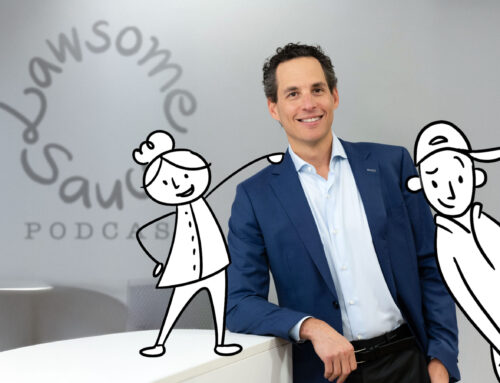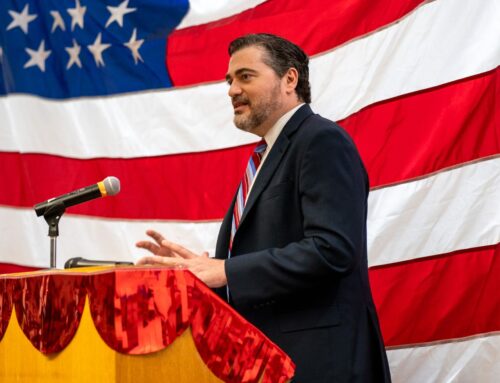By Andrew Scurria and Sara Randazzo, Wall Street Journal| March 11, 2019
Famed litigator’s bid-rigging lawsuit, filed on behalf of Venezuela oil giant, is thrown out by a U.S. judge. David Boies is dealt setback in Venezuela Oil conspiracy lawsuit famed litigator’s bid-rigging lawsuit, filed on behalf of Venezuela oil giant, is thrown out by a U.S. judge By Andrew Scurria and Sara Randazzo | March 11, 2019

A judge said a litigation trust represented by David Boies lacks legal standing to recover money it claims was stolen from Venezuela’s PdVSA. PHOTO: ANDREW HARRER/BLOOMBERG NEWS
A U.S. judge threw out a lawsuit brought by famed lawyer David Boies on behalf of Venezuela’s state energy company that alleged bid-rigging by oil traders.
The judge ruled Friday that a litigation trust represented by Mr. Boies lacks legal standing to recover money it claims was stolen from Petróleos de Venezuela SA through an elaborate computer-hacking-and-bribery scheme.
To bring the lawsuit in a U.S. court, Mr. Boies put in place a complex legal structure for the trust to take ownership of PdVSA’s legal claims surrounding the bid-rigging conspiracy that the suit alleged. Two-thirds of any recovery would be split among Mr. Boies’s law firm—Boies Schiller Flexner LLP—the investors who funded the suit and a private investigator.
The remaining 34% was earmarked for PdVSA by way of the U.S. trust formed to serve as the plaintiff for a sweeping lawsuit against dozens of oil trading firms, banks and individuals.
“The clear purpose of the trust agreement was to bring this lawsuit—with attorneys and investors as the primary beneficiaries,” Judge Darrin P. Gayles of the U.S. District Court in Miami said in his ruling.
A spokesman for the trust said the ruling “overlooked both relevant facts and binding precedent” and that Boies Schiller Flexner would appeal Friday’s ruling to the U.S. Court of Appeals for the Eleventh Circuit.
While so-called litigation trusts are sometimes used in U.S. corporate bankruptcies to pursue commercial claims for the benefit of creditors, they are more unusual as a vehicle for a sovereign state or state-run firm to sue in the U.S.
The lawsuit marked a potentially lucrative bet for Mr. Boies, but critics inside Venezuela said the suit could provide a financial lifeline to a corrupt regime led by President Nicolás Maduro.
Mr. Boies previously told The Wall Street Journal he set up the trust to ensure his team could pursue the claims on behalf of PdVSA uninterrupted if there was a change of government in Caracas.
Mr. Boies said his firm was battling corruption and pursuing assets that belong to PdVSA and by extension to the Venezuelan people.
The Trump administration has imposed oil sanctions that are curtailing the flow of petrodollars to PdVSA as part of Washington’s efforts to oust Mr. Maduro in favor of opposition leader Juan Guaidó, who the U.S. has recognized as Venezuela’s legitimate head of state.
Mr. Guaidó has the backing of the U.S. and dozens of European and Latin American countries while Mr. Maduro controls of vital state institutions, including the military,
supported by diplomatic allies in Cuba, Russia and China. Opposition leaders in Venezuela’s legislature have decried PdVSA’s deal with Mr. Boies, declaring it unconstitutional.
Filed in March 2018, the lawsuit accused little-known Miami trading firm Helsinge Inc. of penetrating PdVSA’s computer servers and secretly collecting internal information on auctions for the import and export of fuel products. Traders allegedly exploited the stolen data to game contract offers, depriving PdVSA of billions of dollars throughout the 2000s, according to the complaint. In addition to Helsinge, other defendants in the lawsuit included trading firms Glencore PLC, Vitol Group and Lukoil.
Alex Gonzalez, a lawyer for Helsinge, said his team was pleased with Judge Gayles’s ruling.
Mark MacDougall, a lawyer for two PdVSA traders named as defendants, said the ruling made clear that “federal courts are no place for this kind of experimental litigation.”
Etan Mark, a lawyer for former Helsinge employee Jack Ryan, a defendant in the lawsuit, said the case “never should have been brought in the first instance.”
Attorneys for Vitol and Glencore declined to comment. Attorneys for other defendants didn’t immediately respond to requests for comment.
Judge Gayles said Mr. Boies hadn’t validated the documents that created the trust, in part because Venezuelan officials who signed the papers never showed up in the U.S. to answer questions under oath amid the political instability in Caracas.
The judge also said he would honor the opposition’s decision to void the agreement as the only governing body in Venezuela recognized by the Trump administration.



